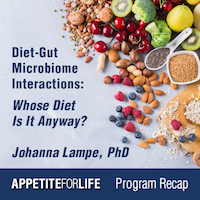Microbiome and Nutrition
The complex community of bacteria, yeasts and viruses living in our intestines, collectively known as the gut microbiome, is shaped, in part, by what we eat. Genetics, environment, and other factors also influence an individual’s microbial community. Research at the NRI investigates these complex relationships and their impact on disease risk. We use animal models and bioinformatics to study the associations between nutritional metabolites, gut microbiome, and health. What happens in the gut doesn’t stay in the gut. Your microbiome can play a role in cardiovascular disease, obesity and diabetes, and even cancer. Our team envisions a future where analysis of your microbiome can determine disease risk, and medical foods can be prescribed to treat and prevent disease by regulating the microbiome.
Publications
Microbiome and Nutrition Publications
2020
Population studies of TMAO and its precursors may help elucidate mechanisms. Meyer K
2019
Association of dietary patterns with the gut microbiota in older, community-dwelling men. Meyer K
2018
Meta-analysis of human genome-microbiome association studies: the MiBioGen consortium initiative. Meyer K
Human microbiota, blood group antigens, and disease. Sumner S
2017
Trimethylamine N-Oxide, the Microbiome, and Heart and Kidney Disease. Zeisel S
2016
Diet and Gut Microbial Function in Metabolic and Cardiovascular Disease Risk. Meyer K
Antibiotic-mediated gut microbiome perturbation accelerates development of type 1 diabetes in mice. Sumner S
Related News
Nutrition Decisions in a Conflicting World: Eggs-actly the Issue
April 18, 2019 – How are we expected to make healthy choices about food when the headlines are so confusing? We all suffer whiplash when we read butter is bad, then butter is good; when red meat is bad, then red meat is good; when red wine is good, and then it is bad….so, what is the headline du jour?
AFL@JWU Recipes – April 17, 2019
April 17, 2019 – Chef Megan Lambert, MS, RD, Senior Instructor in College of Culinary Arts at Johnson & Wales University, Charlotte, prepared healthy, delightful One-Pan Wonders recipes while Steph Saullo, MS, RD of the UNC Nutrition Research Institute, shared nutrition information on each recipe. The recipes from the April 17, 2019 Appetite For Life @ Johnson & Wales University program are available here for your cooking enjoyment!
AFL@JWU Nutrition Notes – April 17, 2019
April 17, 2019 – The science on food and nutrients and their relationship to health is complex. Individuals are unique and there are various factors that influence health outcomes. Researchers at the UNC Nutrition Research Institute (NRI) are working very hard to understand the intricacies of diet and nutrients, and their relationship to disease prevention and progression with the goal that general dietary guidance will be replaced with personalized nutrition recommendations.
AFL Program Recap: "Diet-Gut Microbiome Interactions: Whose diet is it anyway?"
March 22, 2019 – If you missed our March Appetite for Life presentation by Joanna Lampe, PhD, RD, you can catch up. Watch the entire program on video now. The live presentation took place at Forty-Six in Kannapolis on Wednesday, March 13, 2019.
NIH Grant To Study Gene Mutation Associated with Rare Disease
March 22, 2019 – Sergey A. Krupenko, PhD, professor of nutrition at the UNC Nutrition Research Institute (NRI), has been awarded a $2.4 million grant from the National Institutes of Health for his research project, “Regulation of Mitochondrial Function by Folate...
Personalized nutrition: A diet for every individual?
February 25, 2019 –Emily started gaining weight when she was in her 30’s, after having two kids and dealing with a stressful job. Her weight gain led to increased blood pressure and higher cholesterol levels. When she visited her doctor, the doctor advised that she change her diet to help her lose weight and improve her cardiovascular health. Emily knew following a diet was difficult, and it took a few false starts for her to follow one consistently.







